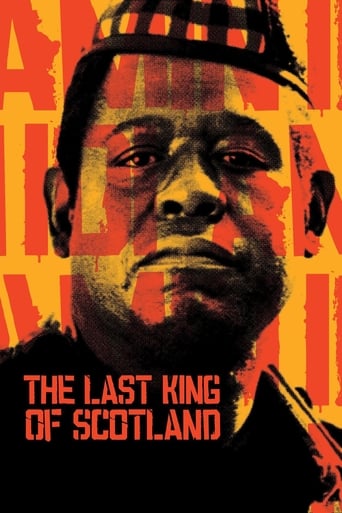

No Way Out (1950)
Two hoodlum brothers are brought into a hospital for gunshot wounds, and when one of them dies the other accuses their black doctor of murder.
Watch Trailer
Cast


Similar titles
Reviews
In continuing to review African-Americans in film in chronological order for Black History Month, we're back in 1950 when a young 22-year-old actor named Sidney Poitier makes his feature film debut in a major motion picture with Richard Widmark as his co-star. Poitier is Dr. Luthur Brooks, who is just starting his practice in the county hospital. Widmark is Ray Biddle, a racist criminal who blames Dr. Brooks for killing his brother in front of him when in reality he was trying to save him. Instead of revealing any more about the plot, I'll just say what great dramatic tension comes whenever these two are together especially when they come to a head at the end. Also adding greatly to the proceedings are Linda Darnell as Ray's brother's former wife who goes back and forth on her loyalties, Stephen McNally as Luthur's superior-Dr. Wharton, Harry Bellaver as George Biddle-Ray's other brother who's deaf and dumb, and Dot Johnson as orderly Lefty Brooks who tells a compelling reason to Poitier why he's attending a riot with his fellow dark-skinned brothers against Ray's fellow white bigots. Even today, No Way Out can fill one with shock at what is said and done here. So on that note, that's a high recommendation. P.S. Among the other people of color in the cast: Mildred Joanne Smith in her only film appearance as Luthur's wife Cora, J. Louis Johnson as an elderly man who also works at the hospital, husband and wife Ossie Davis (in his film debut) and Ruby Dee as brother John and sister Connie Brooks, Maude Simmons as the mother of all three Brooks siblings, and Amanda Randolph as Dr. Wharton's housekeeper Gladys. About the last one, I've now seen this sister of Lillian Randolph-one of the players of my favorite movie, It's a Wonderful Life-in such black-oriented fare as The Black Network, Swing!, and-just several days ago-in Lying Lips not to mention in several eps of "Amos 'n' Andy" as Sappire's mama. And now, for the past few days and hours, I've also seen Dot Johnson and J. Louis Johnson in Reet, Petite, and Gone not to mention Ruby Dee in The Jackie Robinson Story. I've also looked at the list of movies many of them made after this one that I plan to review the rest of this month and am now looking forward to anticipating whatever surprises await when the time comes. It should be interesting, that's for sure!
As a "baby-boomer" I recall having been shocked by this film back in the '60s when it was shown on TV...even then with a cautionary advisory for younger viewers. It was in Chicago where I saw it...at that time Amanda Randolph was starring on "Make Room For Daddy" with Danny Thomas, and her famous sister, Lillian Randolph--famous for the roles she did in the "Tom and Jerry" cartoons, and the many film and radio roles she did--such as on "The Great Gildersleeve ( Birdie)" and her unforgettable presence in "It's a Wonderful Life"--had retired from show-biz and had settled in Chicago. "No Way Out" is a film that scrapes raw nerve endings. It gets right to the point, and is shocking because of the level of honesty it brings to the screen on the matter of race relations in America, circa 1950. The film definitely broke new ground, and was a break-out movie for Sidney Poitier, as well as Ossie Davis and Ruby Dee and others in the cast. Poitier is Dr Luther Brooks, trailblazing doctor put in control over a hospital ward who gets no respect and is constantly under the gun. When a patient in his care dies under what appear to be questionable circumstances, the groundwork is laid for for racist feelings to come to the fore. And, as word gets in the breeze, it comes to the point where a race riot could possibly ensue. Turns out that Brooks made the right diagnosis and took the right actions...but will word get around in time enough to quell the racial tensions that have heightened to nearly a fever pitch? This film is very intense, and can stand alongside of any of the films of today...it is honest, well scripted, well acted, and frightening in its delivery. It will have you on the edge of your seat. I recall back in the 80s and 90s when the Gen-X-ers were first seeing it in AMC and other cable outlets. Most did not know that things were as they were in that period of "pre-civil rights movement" America, and they were shocked to discover that such a film had been made. This is a film that not only changed cinema, but which also helped change America...and on that basis alone it is worth a watch...and I am sure you may want to watch it more than once.
NO WAY OUT is one of the best films about race prejudice that Hollywood ever made. One of the reasons this is so is because of the crude, evil and unflinching language used throughout the movie. If the movie were made now, it would most likely be sanitized--and that's a shame, as the vileness and stupidity of racism is diminished when film makers censor their message in order to avoid offending people. This movie is patently offensive--and because of that, it succeeds in telling a story that really packs an emotional wallop.Sidney Poitier plays a young doctor who was unfortunate enough to treat two brothers who are thieves on the jail ward of the hospital. Unfortunate, because one brother dies (through no fault of the doctor) and the other is such an insane racist (Richard Widmark) that he is sure the doctor killed his brother--though it's only because Poitier is black that he believes this. In Widmark's view of the world, blacks are garbage and he gives this doctor nothing but hatred and disrespect. Even when it is proved that Poitier did NOT kill this patient, Widmark is determined to get revenge...one way or another. There's a heck of a lot more to the plot than this, but I'll hold back so I won't spoil the suspense. And, speaking of suspense, this is one of the tensest films I've seen in some time--it kept my interest every minute.Some performances are worth noting. First, Stephen McNally plays one of his rare performances as a nice guy. Usually, he played heavies--gangster types. Here, he plays a fine human being--and I was shocked to see this. Second, Richard Widmark really did a great job. I know in real life he was a very liberal man and a champion of causes such as race relations. Yet, you'd never know it based on this venomous performance--he is one of the nastiest, if not the nastiest, racist I've seen on film. He gave a very ugly face to white supremacy--and showed just how sick racism is. As for Poitier, he was just great--as you'd naturally expect. I was just surprised that this was his first Hollywood type role--he seemed like an experienced vet.I think, however, the biggest stars of the film are the screen writers (Joseph L. Mankiewicz and Lesser Samuels) and director (Mankiewicz once again). The screenplay was simply amazing--convincing, taut and believable. The direction was also first-rate--something you'd expect from the same guy who brought us classics like ALL ABOUT EVE and A LETTER TO THREE WIVES. One scene in particular that I loved was when the flare was fired. That long pause as everyone was just frozen before the race riot began was brilliant--many directors wouldn't have used the pause and would have missed this chance to build the tension.A great film.
Another menacing portrayal by Richard Widmark,another strong performance by the great actor.Although the other stars (Poitier,Darnell,McNally) are quite good,he steals every scene he is in,and the scenes in which he does not play seem weaker by comparison. What Biddle can't forgive Brooks ,it's to be an educated man ,to have been able to become a doctor whereas he has remained a crude brute ,reading comics (so does the deaf-dumb)and still leaving in a lousy part of the town.Look at his face when Brook is examining his brother:if looks could kill,his probably would.Biddle's hatred knows no bounds and is impervious to any straight thinking.Mankiewicz's directing is not as inventive as in previous ("THe ghost and Mrs Muir" )or later ("Suddenly last summer" "sleuth" ) works,but Widmark makes it all worthwhile.














